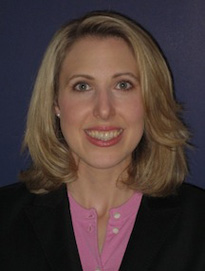College Site | Development | TOC - Department Dev Sites | CLHS TOC | Center for Law, Health & Society | News and Events | Center News | Speakers discuss hotly debated issue of health care reform Speakers discuss hotly debated issue of health care reform
January 20, 2010
 ATLANTA--With the topic of healthcare reform legislation dominating the news and permeating conversations across the country, the Center for Law, Health & Society at the Georgia State University College of Law and students in the school's Student Health Law Association sponsored a public program in which invited speakers examined the need for reform and the proposed legislative solutions.
ATLANTA--With the topic of healthcare reform legislation dominating the news and permeating conversations across the country, the Center for Law, Health & Society at the Georgia State University College of Law and students in the school's Student Health Law Association sponsored a public program in which invited speakers examined the need for reform and the proposed legislative solutions.
The discussion featured an intense look at the proposed reforms addressing patient access, the quality of services, the cost and, of course, public funding. The audience included law students, practitioners and Georgia legislators.
The program addressed how health care reform could affect Americans as Congress continued working on a merged bill. "Our speakers provided background on where we are and where the reforms are likely to take us," said Jerri Nims Rooker, the center's associate director.
The invited speakers included Cindy Zeldin, M.A. (pictured left), who has years of public policy experience at both the state and national level and currently serves as executive director of Georgians for a Healthy Future, where she works to increase access to quality affordable healthcare through policy initiatives, legislation and civic action. She was joined by Dr. Steve Stranne, both a physician and a partner in the Washington D.C. office of Bryan Cave Powell Goldstein LLP, where he focuses his practice on developing regulatory and legislative initiatives for various factions of the health care industry as well as conducting policy research.
The discussion was moderated by Randall Hughes, J.D., a Faculty Fellow and Adjunct Faculty member in health care business regulation with the Center for Law, Health & Society. He is Of Counsel with Bryan Cave Powell Goldstein LLP and is a retired practice group leader of the Atlanta Health Care group.
Zeldin introduced a number of facts and figures regarding the current state of today's American health insurance system. Zeldin described a system in which 52 percent of the population is insured through employer-sponsored insurance programs and 15 percent of the population is uninsured. The remaining population has private non-group insurance, Medicare or Medicaid.
Since World War II, the United States, unlike other developed nations, has looked at the place of employment as the source of health insurance. As the economy has drastically declined and unemployment has reached record numbers, terminated employees have limited options for health care coverage. Many depend on COBRA policies to extend healthcare benefits or seek individual coverage that can be expensive, leading many to have no choice but to join the swelling number of uninsured.
Healthcare reform is "structurally complex with engaged stake holders occupying space and exercising political clout on every piece that is being restructured," Zeldin said. In order to reform the system, major provisions should take place in employer responsibilities, expansion of Medicaid, regulation of private insurance and subsidies for the working poor laboring uninsured, she added.
 "The future of who will control Congress and the Presidency" rests in the healthcare debate, Stranne said. While he agreed with Zelin about the basics of healthcare, with access, cost, quality and value playing significant roles in how the reform should be structured, Stranne said the main goals of healthcare reform should be to cover those uninsured with stable coverage, slow the rapidly increasing cost of health care and to encourage efficiency and quality in how health care is provided. How to proceed in this reform, however, reveals the divisions along party lines that have become polarizing.
"The future of who will control Congress and the Presidency" rests in the healthcare debate, Stranne said. While he agreed with Zelin about the basics of healthcare, with access, cost, quality and value playing significant roles in how the reform should be structured, Stranne said the main goals of healthcare reform should be to cover those uninsured with stable coverage, slow the rapidly increasing cost of health care and to encourage efficiency and quality in how health care is provided. How to proceed in this reform, however, reveals the divisions along party lines that have become polarizing.
The Democrats, Stranne explained, are looking to guaranteed issuance of insurance to those with pre-existing conditions along with individual and employer mandates. The Republicans counter with a proposal to expand state-based high-risk insurance pools for those with preexisting conditions, no mandates, promotion of individual health savings accounts, and promotion of competition between insurance companies with insurance being sold across state lines.
"We discussed the trends demonstrated by the various health care reform proposals," Nims Rooker said. "The speakers examined the need for reform, the solutions being proposed and the various responses to those proposals."
With midterm elections looming in November and numerous close races, a controversial and polarizing bill will be hard for many members of Congress to approve and the reform may lose momentum. Health care is something that affects every person within the United States and the reform changes that occur will impact everyone as well.
By Cindi Yarbrough, Georgia State Law student